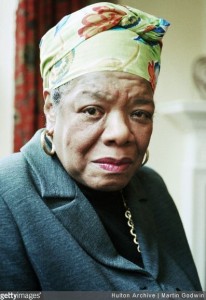 Empathy is the word for the capacity to understand another person’s perspective or experience without necessarily agreeing with it. Empathy allows humans to be in synch and resonate with each other in spite of differences. There is plentiful scientific and anecdotal evidence that humans crave the sense of being understood. Feeling recognized and understood is one aspect of dignity and the belief that one has inherent worth as a human being.
From my experience, I would like to share a few examples of how empathy can lead to wise decisions during a separation or divorce. A young woman with whom I have a professional relationship recently told me that the nesting arrangement she and her spouse were using to ease their children’s transition during their divorce had become too difficult to maintain. She essentially felt homeless and ungrounded, moving from the homestead to a shared apartment when on and off duty with the kids. Her take-away from this experience was deep empathy for the task children face when needing to transition from one home to the other. She said, “I completely get why we need to each have all the things our children will need to be comfortable in both homes, and why we should not ask them to pack suitcases for a transition. They will need our patience and understanding as they get used to this.”
Some parents with whom I worked on a parenting plan had empathy for the difficulty extended family members were experiencing as the holidays approached. They recognized that people with whom they had been close didn’t know how to act, or whether to invite soon-to-be former spouses to events or holiday gatherings involving the kids. In one case, a parent had misinterpreted silence as rejection, only to find that it was borne of confusion and sadness. These parents decided to send a We Statement to both extended families, describing the respectful, collaborative process they were using in their divorce and the hard work they were doing to transition from a married couple to effective co-parents. They said they welcomed questions and hoped for loving support for their children and for them as they made this transition.
My third story of empathy involves a teen and his parents. He worried that his mom’s feelings would be hurt because he wanted to continue working out at the home gym in his dad’s house, and not with the equipment his mom had purchased while expressing the wish that work-outs could occur in both homes. He appreciated her gesture, but knew that his dad was experienced in spotting him and managing the work-out sessions, and his mom was not. He understood that his mom wanted something special to do with him too, and we came up with a plan for his mom to give him cooking lessons (another interest of his) because she was a wonderful cook. His parents also showed empathy for their son’s dilemma, and when given this feedback told him he was free to spend time at either home to enjoy special activities even if it wasn’t that parent’s official parenting time.
The ability to be open and responsive to how another person thinks or feels is one of the gifts of being human. It is also a healing force during times of distress and crisis. Being empathetic demonstrates strength, and experiencing empathy is one of the foundations of resilience for kids.
Empathy is the word for the capacity to understand another person’s perspective or experience without necessarily agreeing with it. Empathy allows humans to be in synch and resonate with each other in spite of differences. There is plentiful scientific and anecdotal evidence that humans crave the sense of being understood. Feeling recognized and understood is one aspect of dignity and the belief that one has inherent worth as a human being.
From my experience, I would like to share a few examples of how empathy can lead to wise decisions during a separation or divorce. A young woman with whom I have a professional relationship recently told me that the nesting arrangement she and her spouse were using to ease their children’s transition during their divorce had become too difficult to maintain. She essentially felt homeless and ungrounded, moving from the homestead to a shared apartment when on and off duty with the kids. Her take-away from this experience was deep empathy for the task children face when needing to transition from one home to the other. She said, “I completely get why we need to each have all the things our children will need to be comfortable in both homes, and why we should not ask them to pack suitcases for a transition. They will need our patience and understanding as they get used to this.”
Some parents with whom I worked on a parenting plan had empathy for the difficulty extended family members were experiencing as the holidays approached. They recognized that people with whom they had been close didn’t know how to act, or whether to invite soon-to-be former spouses to events or holiday gatherings involving the kids. In one case, a parent had misinterpreted silence as rejection, only to find that it was borne of confusion and sadness. These parents decided to send a We Statement to both extended families, describing the respectful, collaborative process they were using in their divorce and the hard work they were doing to transition from a married couple to effective co-parents. They said they welcomed questions and hoped for loving support for their children and for them as they made this transition.
My third story of empathy involves a teen and his parents. He worried that his mom’s feelings would be hurt because he wanted to continue working out at the home gym in his dad’s house, and not with the equipment his mom had purchased while expressing the wish that work-outs could occur in both homes. He appreciated her gesture, but knew that his dad was experienced in spotting him and managing the work-out sessions, and his mom was not. He understood that his mom wanted something special to do with him too, and we came up with a plan for his mom to give him cooking lessons (another interest of his) because she was a wonderful cook. His parents also showed empathy for their son’s dilemma, and when given this feedback told him he was free to spend time at either home to enjoy special activities even if it wasn’t that parent’s official parenting time.
The ability to be open and responsive to how another person thinks or feels is one of the gifts of being human. It is also a healing force during times of distress and crisis. Being empathetic demonstrates strength, and experiencing empathy is one of the foundations of resilience for kids.  Empathy is the word for the capacity to understand another person’s perspective or experience without necessarily agreeing with it. Empathy allows humans to be in synch and resonate with each other in spite of differences. There is plentiful scientific and anecdotal evidence that humans crave the sense of being understood. Feeling recognized and understood is one aspect of dignity and the belief that one has inherent worth as a human being.
From my experience, I would like to share a few examples of how empathy can lead to wise decisions during a separation or divorce. A young woman with whom I have a professional relationship recently told me that the nesting arrangement she and her spouse were using to ease their children’s transition during their divorce had become too difficult to maintain. She essentially felt homeless and ungrounded, moving from the homestead to a shared apartment when on and off duty with the kids. Her take-away from this experience was deep empathy for the task children face when needing to transition from one home to the other. She said, “I completely get why we need to each have all the things our children will need to be comfortable in both homes, and why we should not ask them to pack suitcases for a transition. They will need our patience and understanding as they get used to this.”
Some parents with whom I worked on a parenting plan had empathy for the difficulty extended family members were experiencing as the holidays approached. They recognized that people with whom they had been close didn’t know how to act, or whether to invite soon-to-be former spouses to events or holiday gatherings involving the kids. In one case, a parent had misinterpreted silence as rejection, only to find that it was borne of confusion and sadness. These parents decided to send a We Statement to both extended families, describing the respectful, collaborative process they were using in their divorce and the hard work they were doing to transition from a married couple to effective co-parents. They said they welcomed questions and hoped for loving support for their children and for them as they made this transition.
My third story of empathy involves a teen and his parents. He worried that his mom’s feelings would be hurt because he wanted to continue working out at the home gym in his dad’s house, and not with the equipment his mom had purchased while expressing the wish that work-outs could occur in both homes. He appreciated her gesture, but knew that his dad was experienced in spotting him and managing the work-out sessions, and his mom was not. He understood that his mom wanted something special to do with him too, and we came up with a plan for his mom to give him cooking lessons (another interest of his) because she was a wonderful cook. His parents also showed empathy for their son’s dilemma, and when given this feedback told him he was free to spend time at either home to enjoy special activities even if it wasn’t that parent’s official parenting time.
The ability to be open and responsive to how another person thinks or feels is one of the gifts of being human. It is also a healing force during times of distress and crisis. Being empathetic demonstrates strength, and experiencing empathy is one of the foundations of resilience for kids.
Empathy is the word for the capacity to understand another person’s perspective or experience without necessarily agreeing with it. Empathy allows humans to be in synch and resonate with each other in spite of differences. There is plentiful scientific and anecdotal evidence that humans crave the sense of being understood. Feeling recognized and understood is one aspect of dignity and the belief that one has inherent worth as a human being.
From my experience, I would like to share a few examples of how empathy can lead to wise decisions during a separation or divorce. A young woman with whom I have a professional relationship recently told me that the nesting arrangement she and her spouse were using to ease their children’s transition during their divorce had become too difficult to maintain. She essentially felt homeless and ungrounded, moving from the homestead to a shared apartment when on and off duty with the kids. Her take-away from this experience was deep empathy for the task children face when needing to transition from one home to the other. She said, “I completely get why we need to each have all the things our children will need to be comfortable in both homes, and why we should not ask them to pack suitcases for a transition. They will need our patience and understanding as they get used to this.”
Some parents with whom I worked on a parenting plan had empathy for the difficulty extended family members were experiencing as the holidays approached. They recognized that people with whom they had been close didn’t know how to act, or whether to invite soon-to-be former spouses to events or holiday gatherings involving the kids. In one case, a parent had misinterpreted silence as rejection, only to find that it was borne of confusion and sadness. These parents decided to send a We Statement to both extended families, describing the respectful, collaborative process they were using in their divorce and the hard work they were doing to transition from a married couple to effective co-parents. They said they welcomed questions and hoped for loving support for their children and for them as they made this transition.
My third story of empathy involves a teen and his parents. He worried that his mom’s feelings would be hurt because he wanted to continue working out at the home gym in his dad’s house, and not with the equipment his mom had purchased while expressing the wish that work-outs could occur in both homes. He appreciated her gesture, but knew that his dad was experienced in spotting him and managing the work-out sessions, and his mom was not. He understood that his mom wanted something special to do with him too, and we came up with a plan for his mom to give him cooking lessons (another interest of his) because she was a wonderful cook. His parents also showed empathy for their son’s dilemma, and when given this feedback told him he was free to spend time at either home to enjoy special activities even if it wasn’t that parent’s official parenting time.
The ability to be open and responsive to how another person thinks or feels is one of the gifts of being human. It is also a healing force during times of distress and crisis. Being empathetic demonstrates strength, and experiencing empathy is one of the foundations of resilience for kids. 








